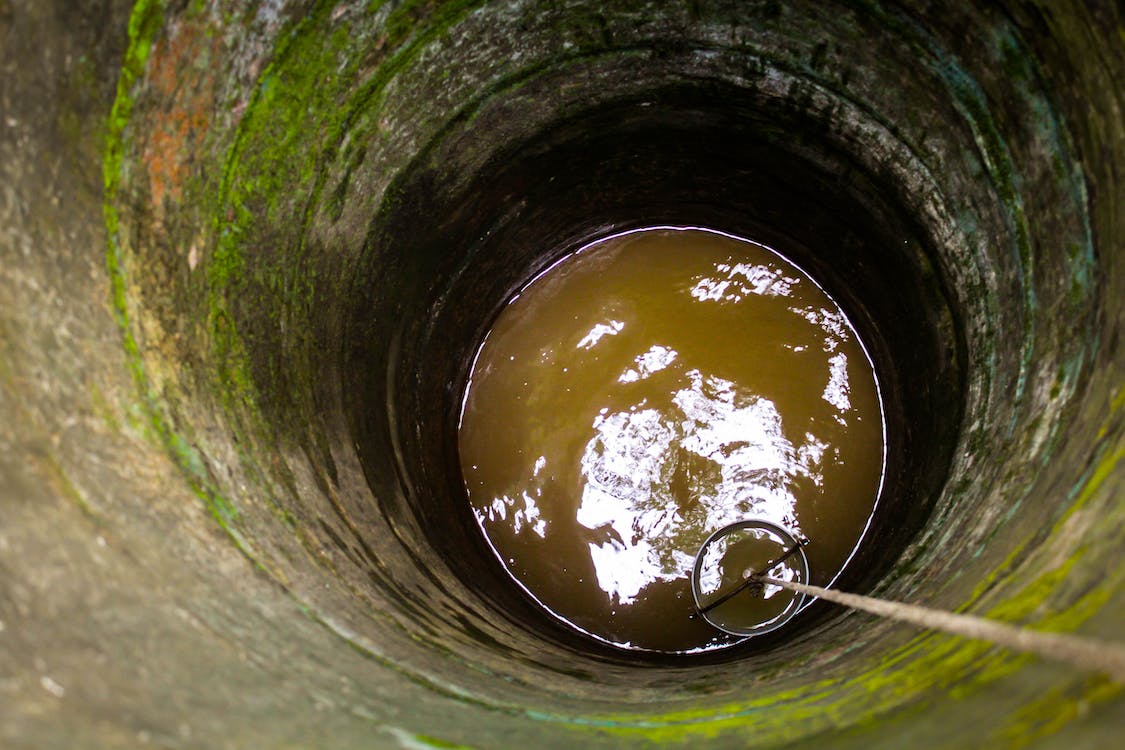Well water is one of the major water sources available abundantly throughout the world. It is obtained by digging a hole into the ground where water is stored underneath. The structure of well is made to form a tap into underground water that is stored there. Generally, the water is then supplied to our homes for consumption with the help of a pump.
Well water is less likely to be contaminated than other sources where the risks of contamination tend to be high. However, there is always the risk of natural contamination in the well water too. There is no water source that can maintain germ-free water free of impurities of any kind. Even seemingly crystal clear water can also contain various impurities and disease causing contaminants in it. Therefore, water that we consume in our daily lives should be purified through a proper filtering system. Visit https://www.stylemotivation.com/how-well-water-solutions-can-change-your-residential-water-system/ and find out how residential wells impact water systems.
However, well water does not need much treatment as other water sources do. It is because well water is composed of water reservoir beneath the ground surface which is comparatively safer and purer than the surface water or other sources. You need to filter your water before the consumption in the best interest of your health.
Water plays critically important role in our lives as it is mandatory for our survival. Therefore, it is obligatory for all of us to ensure its hygienic level and purity. Well water does need a suitable filtration system that purifies the water for healthy consumption and removes the contaminants effectively.
Following are some of the basic reasons that indicate that water filtration system is necessary for well water. And you can also check out a trusted sulfur filter for well water here.
A Prime Prerequisite
In rural areas, well water is the most common employed source of water for the entire population. It is easily available, accessible and favorable for the general masses to meet their water requirements. This source of water is cheap and everlasting. Well water lasts for decades without much difficulty keeping the context of the location and its environmental effects into account. Apart from that, well water is also favorable than municipal water or other water sources because it is reasonably better and ensures lasting savings economically.
However, to avail all of the above positive aspects of well water, it is highly recommended to install a proper filtration system adequately purifying the water before it is conveyed for our consumption. With an adequate water filtration system having the best efficiency level, well water is impeccably suitable and healthy for all of us. If you are going to use an old well, you may need to get it inspected and repaired before adding a filtration system. For more information, read our guide on How to Make Use of an Old Well in the Yard.
Contaminants and Pathogens in Well Water
The surrounding environment of the well plays a crucial role in this regard. Any possible discrepancy in the environment where water well is located can be regarded in terms of disadvantages. It is because the presence of contaminants and pollutants in the surrounding environment substantially affect the quality of the water underground. Mostly, well water contamination results from natural sources rather than human sources.
Similarly, it should also be taken into account that the clear and safe status of the well water does not remain the same with the passage of time. The ratio of contamination and threshold for pure and safe water in these sources keep changing over time. The well water that was clear of certain impurities some time ago may not be safe for consumption today. In short, well water is also not practically safe for our drinking and other usage until and unless it is processed properly through a water filtration system.
Corrosive Impact of Well Water
Well water can cause corrosion and can seep lead from pipes, welded joints and plumbing fixtures. Well water can produce an alarming level of lead in the waterdue to its corrosive nature that is forwarded for residential applications. Serious health issues originate from consuming lead added water that includes heart diseases, kidney problems and nerves disorders etc. In children, the impact is of drinking water with lead is even worse. It can cause behavioral disorders, hearing issues, impaired cognition and even delayed puberty in them.
Most of the times, general masses are likely to be unaware of the fact that well water can be extremely corrosive and can result into leaching lead from pipes and repaired joints. Therefore, it is highly recommended for you to ensure two things:
- Install a well water filtration system
- Make your plumbing lead-free
Unpleasant Odor and Bad Taste
Well water is often likely to produce bad taste and unpleasant odor. You must have noticed that sometimes well water can be unpleasant creating bad smell and even bad taste upon drinking if you happened to be around water well in your life. It is because these features originate from the local contamination. Moreover, there can be several reasons to this situation that certainly affect the whole water supply to the local houses. The solution to this problem is to install a proper filtration system for the purpose of water purification.
Risk of Disease Causing Microorganisms and Other Contaminants
Despite the fact that well water is safer than the surface water as it is filtered by the several layers underground, still there is always a constant risk of contaminants that can easily pollute the water. In this regard, the main disease causing microorganisms and other pollutants that can contaminate well water include manganese, dirt, turbidity, unpleasant tastes and bad smell, iron, sulfur, tannins, hard water, issues in pH value, iron bacteria, nitrates, arsenic, and many other issues.
Microorganisms that can pollute well water include viruses, bacteria, parasites, cryptosporidium, giardia, e-coli and coliform etc.
Chemical contaminants include lead, radon, radium, nitrates arsenic, pesticides and byproducts of the different processes of disinfection.
Impact of Water Shelf
Another drawback involves the impact of water shelf on well water. Water shelf represents the overall water reserves in a particular area. In other words, a region having the amount of water reservoir denotes water shelf of that location. Well water is subject to the impact of water shelf of the region where it is located. The water shelf of a region is influenced by rain and other precipitations in the area. If the amount of water is reduced in the water shelf it directly affects the whole water supply system inevitably.
Testing of Well Water
It is mandatory to conduct all the necessary testing of your well water to ensure the safety and purity level of the water. It is recommended for you to conduct thorough testing for the following contaminants in your well water:
- Arsenic compounds
- Bacterial Pollutants
- Chromium 6 Contaminants
- Mercury Contaminants
- Presence of Nitrates
- Addition of Radon
- Volatile Organic Impurities
There is a general misconception about the testing process that basic screening of well water can cover all the above mentioned contaminants. You are recommended to conduct comprehensive testing process for the detection of each and every high risk contaminant explicitly.
Testing Schedule
It is better to conduct comprehensive testing process of your well water on annual basis. If there is no other specific problem, then testing the well water once a year is enough. However, in case of the following situation, you are advised to conduct testing process as soon as possible:
- When the appearance of your well water, its odor and taste change
- Emergence of new risks of contamination, broken well cap and accumulation of floodwater
- Appearance of Bacterial contamination in well water
- Failure of septic system
- Incidents of health issues among residents i.e. recurrent gastrointestinal problems
Conclusion
From the above discussion it can be said that well water is reasonably safer and purer than the surface water. However, the risk of contamination is still there. There are different ways in which well water can be polluted and hence cause serious health issues if consumed without purification. In order to eliminate the chances of such problems and risks of contamination, water filtration system is the only solution to purify well water and ensure its safety for human consumption.


